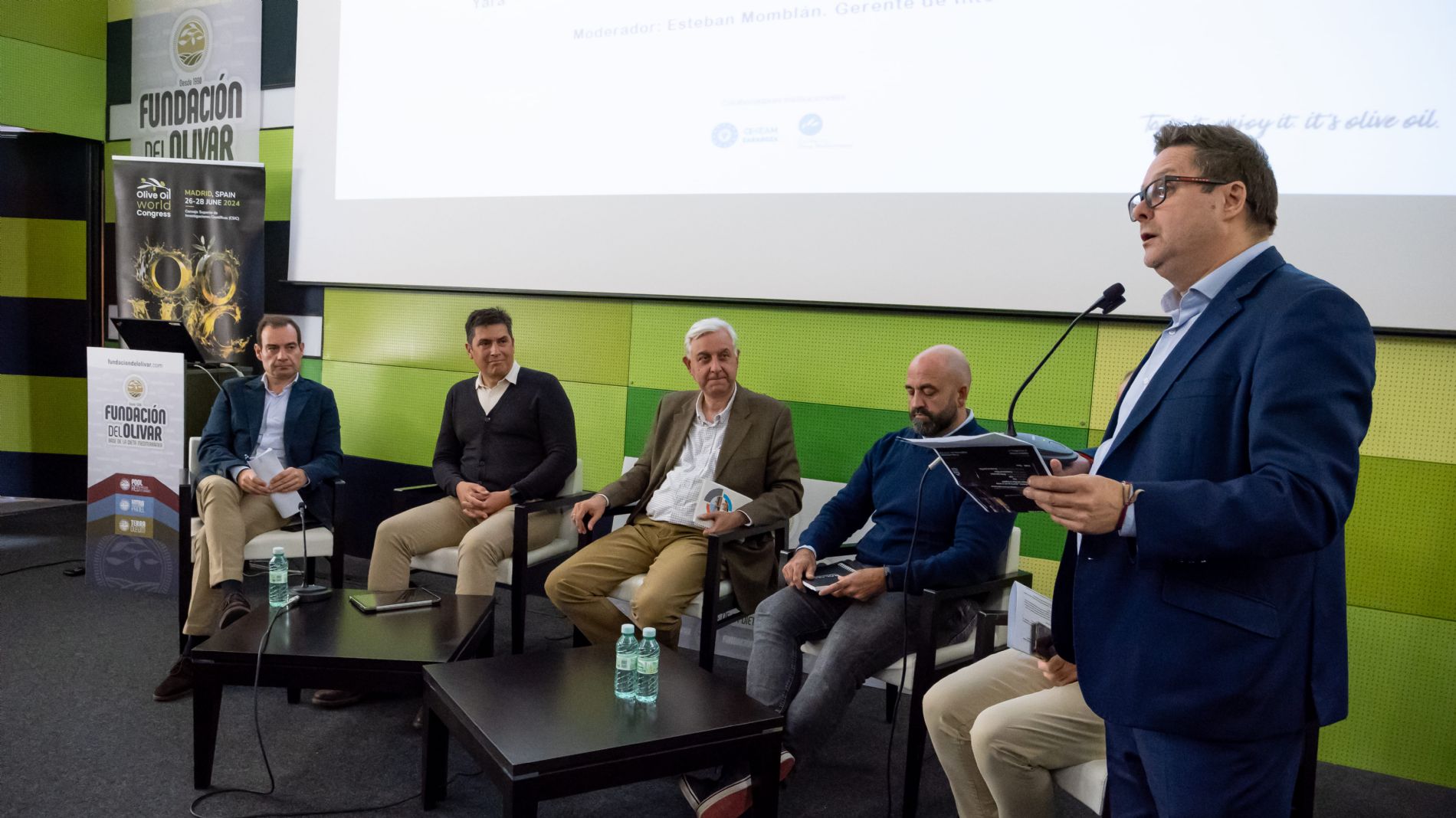
The Olive Oil World Congress (OOWC) has organised the conference entitled ‘Transformation and technological innovation in the olive grove and olive oil sector’ as the first of its Intercongress activities, following the first edition of this international congress held in June.
The aim of this conference was to highlight the application of the new technical and technological tools available to the olive sector, and also to analyse the proposals available on the market for developing innovations that enable the sector to produce more with less, in the climate change environment in which olive oil production currently finds itself.
The opening ceremony was attended by Juan Gadeo, president of the Interóleo Group, Javier Olmedo, managing director of Fundación del Olivar and Ricardo Migueláñez, general coordinator of the OOWC.
The keynote speech ‘The challenge of the technological revolution for the olive grove’ was given by Juan Antonio Polo, head of the Department of Olive Oil Technology and Environment of the International Olive Oil Council (IOC), who recalled that ‘olive oil currently only represents 2% of world consumption of vegetable fats, but that, nevertheless, it is a crop that generates wealth throughout the value chain in the territories where it is located, mainly in the Mediterranean basin’.
In addition, the IOC representative added that ‘in recent years there has been a growing demand, justified fundamentally by the proven benefits of olive oil for human health and its ease of use in gastronomy’. Polo explained that, in the agronomic phase of olive growing, technological advances must be focused on a better application of precision agriculture, through the use of sensorisation or robotics, as well as the use of data that allow real-time statistics, for example, on the conditions in which the crop is being grown in terms of soil humidity, nutrient use or plant health.
‘In short, we have to improve the biological behaviour of the soil through better agronomic practices, which has now come to be known as ‘regenerative agriculture’, added Polo.
He also indicated that ‘the energy recovery of products derived from olive oil is already a reality, but perhaps we need to improve the scalability of the processes, that is, in achieving small-scale processes so that the whole process of energy recovery is technically and economically viable. The path has already been mapped out, it is a question of reaching a successful conclusion as soon as possible’.
Juan Antonio Polo concluded by pointing out that ‘olive growers in Spain face a great challenge in incorporating technology in olive farms, where certain factors, such as structure, generational replacement, misinformation and costs, can be barriers to the modernisation of olive growing’.
Regenerative olive growing
This was followed by a round table discussion, moderated by Esteban Momblán, manager of Interóleo, with the participation of leading experts from the olive grove and olive oil sector, such as Curro Montes, Biological specialist at Yara Iberia; Gregorio Blanco, University lecturer, Agroforestry Engineering Area at the University of Cordoba (UCO); Juan Carlos Cañaveras, Business Development Director at Balam Agriculture, and Javier Olmedo, managing director of Fundación del olivar.
The members of this round table debate pointed out that what is known today as regenerative agriculture is based on several pillars. One of the main pillars is the health of the soil and, therefore, the technology applied on the ground is a great ally that benefits the entire olive growing chain.
The participants agreed that Spain represents 40% of the world's olive oil production, but that, nevertheless, this leadership can only be maintained if the sector continues to be transformed from a technical and technological point of view.
In order for the 2% global consumption of this vegetable fat to continue to increase, practical technology and a production sector that is attractive to young people are needed. Thus, they considered that in 20 years' time, there will be a new farmer who is going to use the most innovative technology, and it is not going to cost him practically any effort, because it will already be an innate part of his activity. He will therefore be a much more specialised farmer, they concluded.
Anyone interested in taking part in this project can obtain information from the OOWC Technical Secretariat at by calling 917217929 or sending an email to info@oliveoilwc.com.
